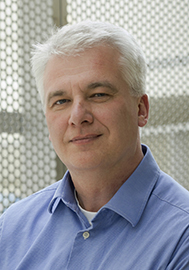Appenzeller receives NSF funding to advance energy efficient computing

The funding comes from NSF’s Energy-Efficient Computing: from Devices to Architectures (E2CDA) initiative.
Researchers at the center will develop a novel spin switch proposed by Supriyo Datta’s research group that is a simple but complete form of a tunable random number generator that can be interconnected to create a network with robust correlations. The spin switch could allow for more comprehensive networking between individual users and the cloud, and would push the frontiers of data processing beyond what is possible with conventional electronics.
The project revolves around a novel device that uses electron spins rather than electron charges for information processing, with a power consumption level far lower than conventional technologies. In addition to the research, the center is partnering with the NEEDS initiative, a NSF and Semiconductor Research Corporation-funded endeavor, to make models and ideas generated by research accessible across science and engineering. The researchers will also expand nanoHUB-U curriculum with new courses to share the circuit-based framework, experimental spintronics, and novel architectures with a broad audience.
Purdue Engineering faculty involved with the center are Zhihong Chen, professor of electrical and computer engineering; Supriyo Datta, the Thomas Duncan Distinguished Professor of Electrical and Computer Engineering; and Mark Lundstrom, the Don and Carol Scifres Distinguished Professor of Electrical and Computer Engineering. They are collaborating with researchers from the University of Central Florida, the University of Minnesota, and the University of California at Berkeley.
